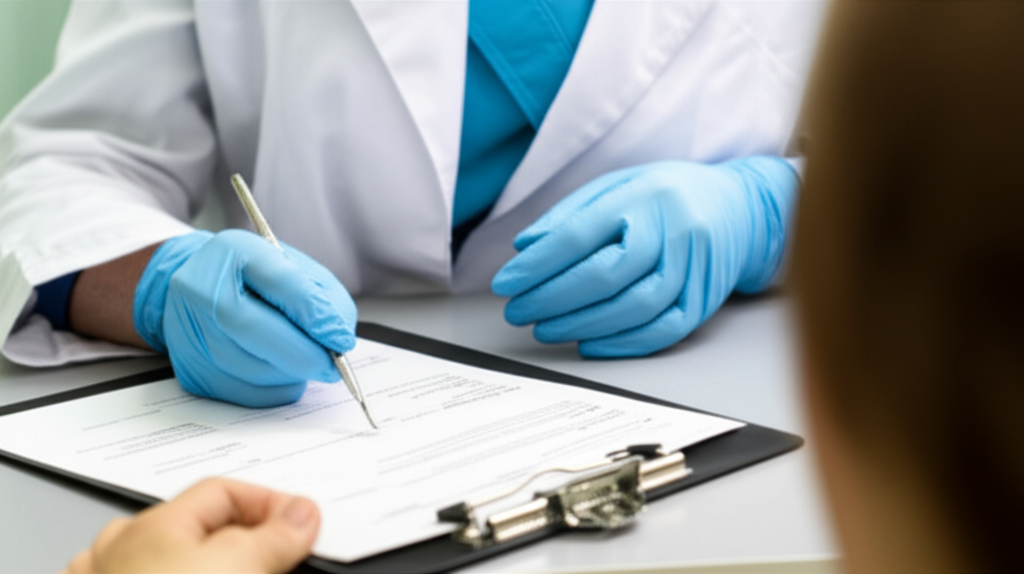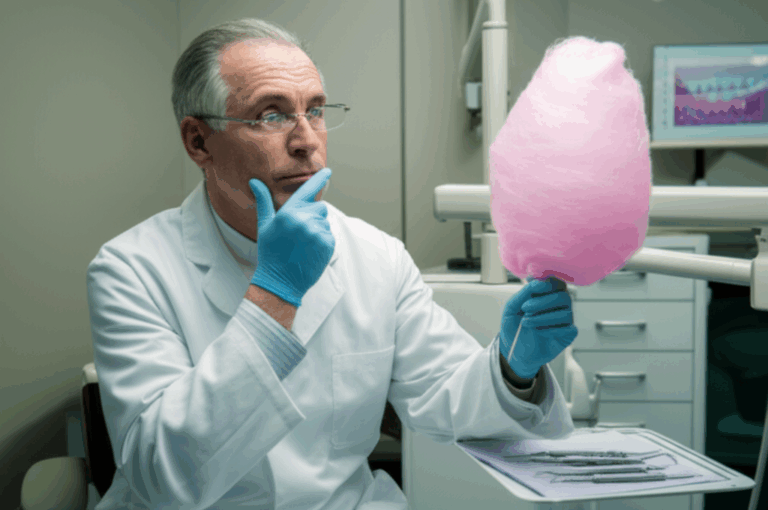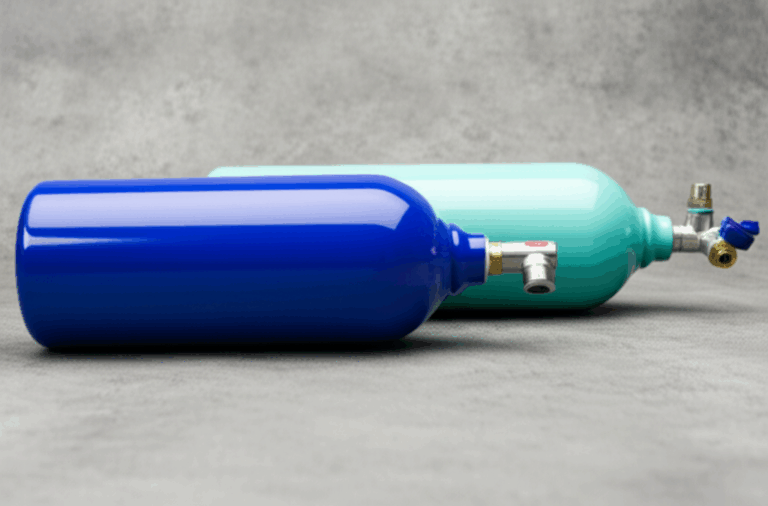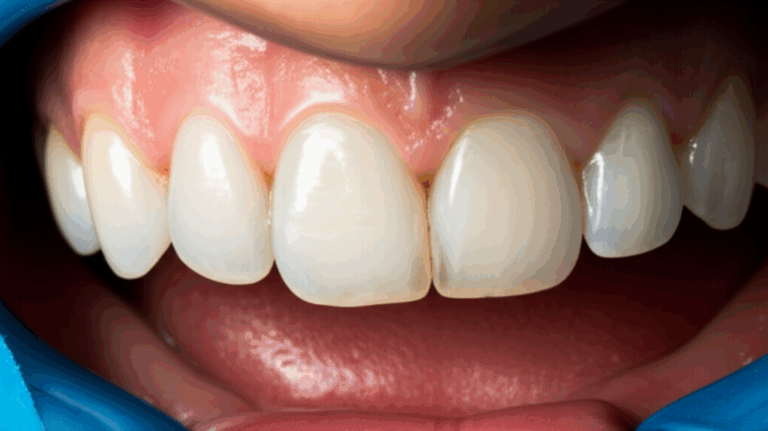
Can a Dentist Give a Sick Note? Understanding Dental Absences and Work Leave
Table of Contents
Introduction: Why I Asked If a Dentist Can Give a Sick Note
If you’ve ever left the dentist with a numb mouth and a prescription in your hand, you probably wondered, “Can my dentist give me a sick note for work?” I’ve thought about this as I sat in the waiting room with a hurting tooth, worried about missing work and not just my own health. This isn’t just my problem, either—my family, friends, and even work buddies have run into the same trouble.
It gets confusing because jobs, schools, and even doctors sometimes handle dental and other sick days in different ways. They often ask for a “doctor’s note” for any sick day, but don’t always know what to do if you’re drooling after a root canal. So I looked into it—so you can figure out dental absences without getting into trouble at work or school.
The Straight Answer: Who Can Issue a Formal Sick Note?
The Simple Rule
Here’s what I found: Dentists, in most cases, can’t give you a “formal sick note” or “Fit Note”—the kind your job might ask for if you’re gone for more than a few days. In places like the UK, only doctors like your regular GP or a hospital doctor can give these notes. Dentists know a lot about teeth, but the law says they’re not full general doctors.
So, if your job wants a formal note after you get your wisdom teeth pulled, the usual dentist paperwork probably isn’t enough. You’ll need your doctor to write that official sick note.
Why This Rule Exists
This rule isn’t just there to annoy you. The law says doctors—not dentists—should decide if you can work or not because doctors look at your whole body health, not just your teeth. Dentists know the mouth really well, but they might not know if you can safely go to work or not after a big dental procedure.
What Dentists Can Actually Provide
Don’t worry! Dentists aren’t totally powerless. I’ve gotten plenty of paperwork from my dentist. Here’s what’s possible:
Dental Certificates and Letters of Attendance
1. Proof of Appointment
Your dentist can give you a note or letter that shows you came for an appointment on a certain day. This is good for school or work to prove you weren’t skipping.
2. Confirmation and Details of Your Problem
After my last root canal, I got a letter saying what treatment I had and that I might feel pain or trouble eating and talking for a couple days. Not a formal “sick note,” but it explained my short time off.
3. Statement of Needed Rest or Healing Time
If you can’t work right after your dental work—maybe you’re swollen or on medicine—your dentist can write that down. For example, “Patient needs 48 hours off after wisdom tooth removal.”
4. Recommendations and Limits
Once, my dentist wrote a note saying I should not talk much for 48 hours after surgery. That way, I didn’t have to lead a meeting with a mouth full of gauze.
When Is This Fine?
For short breaks (like one to three days after getting teeth out or with really bad pain), bosses and teachers will often take a dentist’s letter. This is especially true when you’re allowed to “self-certify” your sickness for a few days—like up to 7 days in the UK.
Common Dental Scenarios When You Need Time Off
You might think people only skip work for big dental emergencies—not true! Sometimes you plan time off (like for surgeries), other times it hits fast—nothing stops your day like sudden tooth pain.
Fast Dental Emergencies
- Severe toothache or abscess: I’ve had an infection so bad I couldn’t sleep, much less work.
- Dental injury: I once broke a tooth playing sports—needed help right away and time to heal.
- Pain you can’t manage: Sometimes tooth pain makes it tough to think or talk at all.
Big or Tough Dental Treatments
- Wisdom tooth removal: I needed at least 2 days off after mine—first for the drooling, second for the swelling!
- Major surgeries: Lots of teeth out or getting implants leaves you tired and bruised.
- Root canals: Depending on the tooth and the drugs, you might need a whole day to get over it.
Getting Over It
- Pain, swelling, or bruises: Makes it hard to eat, talk or even leave the house.
- Side effects from numbing: I felt dizzy and sick for hours after some treatments.
- Hard to concentrate or talk: Tough to teach a class or have a meeting when half your face is numb.
Navigating Employer Policies and Sick Leave for Dental Issues
Different jobs (and bosses!) handle sick days in their own ways. Some are chill, others want a ton of paperwork. Here’s what matters most:
Learn Your Workplace Rule
Self-Certification
In places like the UK and some other countries, you can say you’re sick for up to a week—no doctor’s note needed. So after dental work, I’d just fill out a form or send a message at work.
Medical Evidence
If you’re off longer, jobs may want a real “Fit Note” or “sick note” from your doctor, even if it’s a dental thing. In that case, your dentist’s letter might not cut it if you’re gone more than a week.
Dental Visits Vs. Dental Sickness
There’s a big difference between check-ups (that you plan for) and emergencies or times you really can’t work (like pain, infection, or healing from surgery). Bosses want you to plan cleaning visits outside of work hours but usually get it if you have an emergency.
Tell Your Boss Early
When I know I’ll miss work, I always:
- Let my boss or HR know as soon as possible
- Explain honestly
- Give them my dentist’s note
- Say when I’ll be back
Good, open talk makes things go much easier for everyone.
When You’ll Need a Doctor’s Formal Sick Note
If your dental problem makes you really sick—like you have a fever or can’t eat at all—or your boss wants a doctor’s note after a certain number of days, you’ll need to:
- See your doctor (GP)
- Take your dental paperwork with you
- The doctor will decide if you should stay home longer and give you a formal note
My Step-by-Step Guide for Getting Time Off Due to Dental Issues
This is how I do it every time:
Step 1: Get Dental Care Fast
Don’t wait. If you’ve got a dental emergency or a big planned procedure, go to the dentist soon.
Step 2: Tell Work or School Right Away
Send a quick email or call your boss or teacher. Don’t wait until they’re asking where you are.
Step 3: Ask Your Dentist for a Note
At your appointment, tell the dentist you need a letter for work or school. Ask them to include what you can and can’t do for a few days.
Step 4: Keep Copies
Save all your dental notes, appointment cards, and emails. If your boss later needs proof, you’ll have it.
Step 5: If Needed, Visit Your Doctor
Show your doctor the dental paperwork. Tell them how it affects you overall. Your doctor will give a proper sick note if needed.
Step 6: Update Your Job or School
Keep them posted and tell them if anything changes, or when you’ll be back.
Key Takeaways: What I Learned (So You Don’t Have to!)
- Dentists can’t give “official” sick notes but can write helpful letters for short breaks or emergencies.
- Always ask for a dentist’s letter after treatment. It’s good to have proof just in case.
- Read your job’s sick day policy so you know how much time you can take yourself and when you need paperwork.
- Don’t wait to tell your boss or teacher. Honest and early talk is best.
- See your doctor if you need a longer or more official note. Take the dentist’s letter with you to help explain.
Frequently Asked Questions
1. What does a good dental note look like for missing work or school?
A signed note from your dentist showing when you were there, what was done, and how much time they want you to rest is usually enough for up to 3 days. For school, even just proof of appointment may be plenty.
2. What if my boss won’t take a dental note?
For a short absence, most jobs are fine with self-certifying. If you need more time or your boss is strict, you’ll need a doctor’s “Fit Note.” Book a visit with your doctor and take your dental paperwork.
3. How should I handle planned dental treatments?
Try to set up big dental work late in the week or before holidays to take less time off work. Always let your boss know ahead of time and get a note from the dentist.
4. Can school or university want a doctor’s note even if I saw the dentist?
For school, they’re usually fine with a dentist’s letter. Universities sometimes want more proof, but a good, clear dentist note almost always works.
5. My dental treatment is making me sick all over—what should I do?
Go see your regular doctor. Bring all the dental paperwork and tell them how it’s making you feel. Your doctor can give you a sick note for time you’re too unwell to work.
Final Thoughts: Prioritizing Dental Health and Work Commitments
After going through problems from cracked teeth to wisdom teeth coming out, I learned it’s best to be ready and straight-up about it. Dentists do important work—don’t skip needed care just because you’re scared of paperwork. Always get some kind of note from your dentist, be honest with your boss or school, and speak up for yourself if you’re having a hard time healing.
If you want to learn more about dental options—like dental implants or the role of digital dental labs, how dental ceramics labs work, or even what a removable denture lab does—there’s plenty of info out there. Knowing about these things has helped me see just how important good dental care is, both for work and everything else.
Take care of your teeth, don’t be afraid to stand up for yourself, and remember—it’s always better to take care of dental stuff sooner, because your work and your well-being both rely on it.








